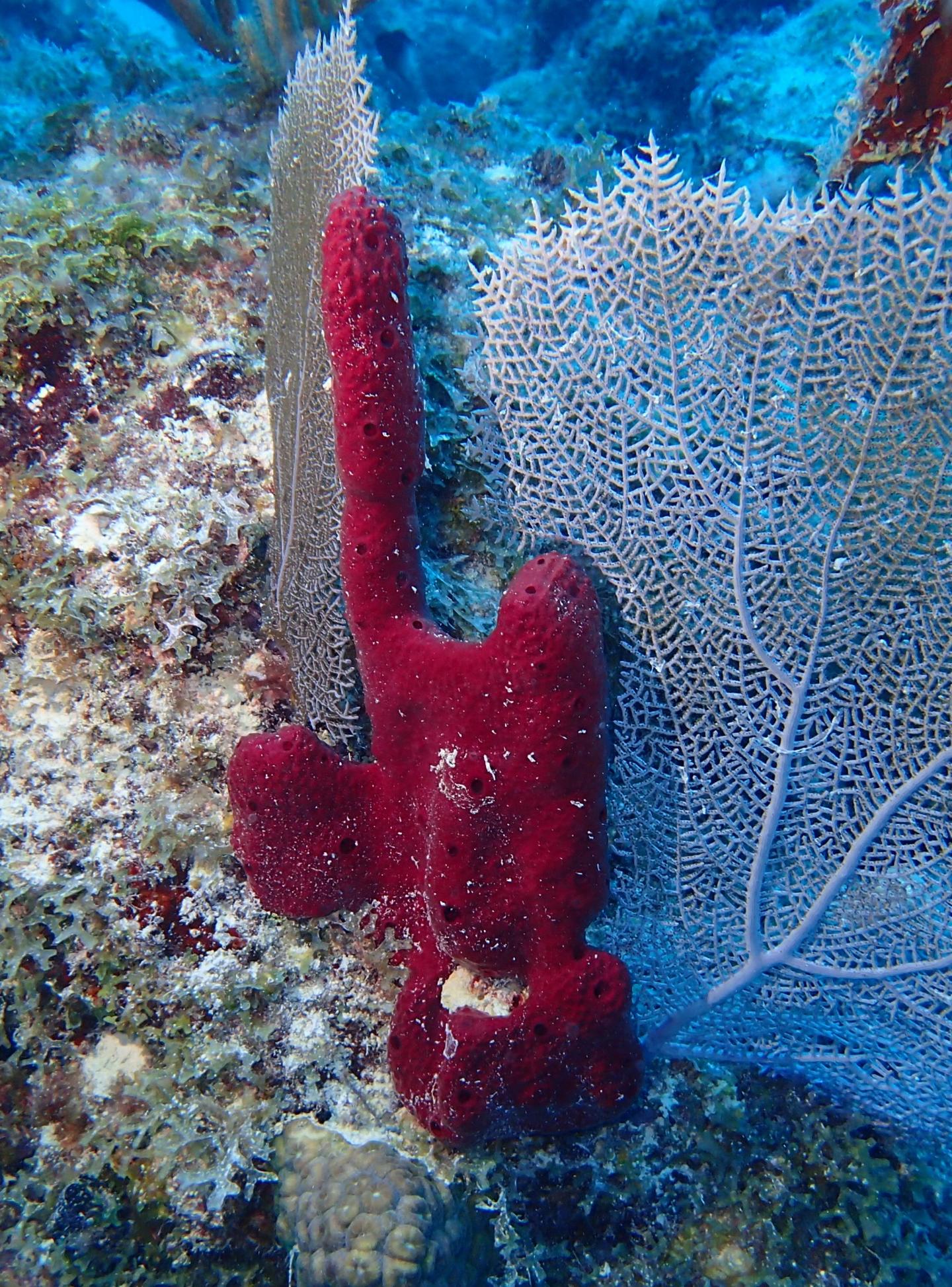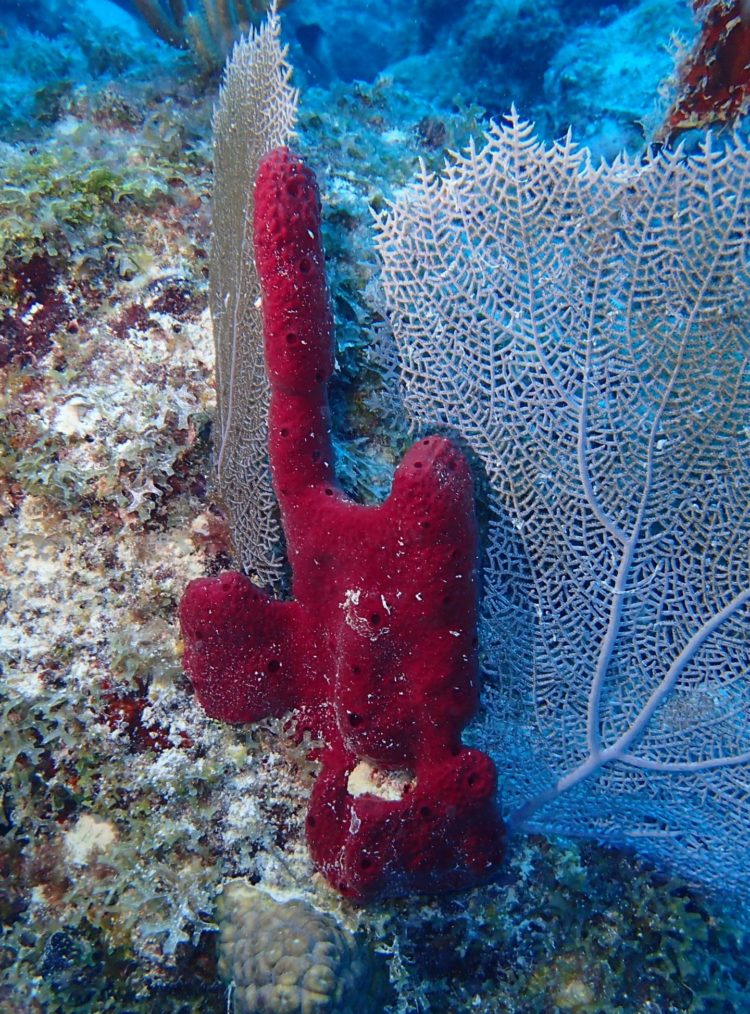Groundbreaking discovery by FAU Harbor Branch, collaborators impacts marine biotechnology, early animal evolution and climate change

Credit: Shirley A. Pomponi, Ph.D.
Vertebrate, insect, and plant cell lines are important tools for research in many disciplines, including human health, evolutionary and developmental biology, agriculture and toxicology. Cell lines have been established for many organisms, including freshwater and terrestrial invertebrates.
Despite many efforts over multiple decades, there are still no cell lines for marine invertebrates including marine sponges, which are the source of thousands of novel chemicals with pharmaceutically relevant properties. Supply of these chemicals also is a bottleneck to development of sponge-derived drug leads, because wild harvest is not ecologically sustainable, and chemical synthesis is challenging due to the complexity of many of the bioactive chemical compounds.
Researchers from Florida Atlantic University’s Harbor Branch Oceanographic Institute and collaborators at Wageningen University in the Netherlands have developed a breakthrough in marine invertebrate (sponge) cell culture. For the first time, they have accomplished a substantial increase in both the rate and number of cell divisions. They have demonstrated that an amino acid-optimized nutrient medium stimulates rapid cell division in nine marine sponge species. The demonstration of exceptionally fast cell division for marine invertebrates (sponges), as well as the researchers’ ability to subculture the cells, is a groundbreaking discovery for marine biotechnology.
Results of the study, published in Scientific Reports, showed that the fastest dividing cells doubled in less than one hour. Cultures of three species were subcultured from three to five times, with an average of 5.99 population doublings after subculturing, and a lifespan from 21 to 35 days.
These findings form the basis for developing marine invertebrate cell models to better understand early animal evolution, determine the role of secondary metabolites, and predict the impact of climate change to coral reef community ecology. Furthermore, sponge cell lines can be used to scale-up production of sponge-derived chemicals for clinical trials and to develop new drugs to combat cancer and other diseases.
“Sponge cell lines could be used as models to understand the role of secondary metabolites in sponges, to use this information to develop new models for drug discovery, and to scale-up production of sponge-derived bioactive compounds for novel medicines,” said Shirley Pomponi, Ph.D., senior author and a research professor at FAU’s Harbor Branch. “Cell lines of common reef sponges also could be used to quantify the effects of climate change such as ocean warming and acidification on uptake of dissolved organic material, a major component of the ‘sponge loop hypothesis’ of carbon cycling, and to test the hypothesis that coral reefs could become sponge reefs as climate changes.”
Sponges (Phylum Porifera) are among the oldest Metazoa and considered critical to understanding animal evolution and development. They are key components of many benthic marine ecosystems. There are more than 9,000 described species that occur worldwide, from the intertidal to the deep sea. Among the oldest metazoans, sponges have evolved a variety of strategies to adapt to different environments. Because they are sessile as adults, they have evolved sophisticated chemical systems for communication, defense from predators, antifoulants to prevent other organisms from growing over them, and to prevent infection from microbes filtered out of the water. These chemicals interact with molecules that have been conserved throughout evolutionary history and are involved in human disease processes, for example, cell cycling, immune and inflammatory responses, and calcium and sodium regulation.
For years, scientists at FAU’s Harbor Branch have been collecting unusual marine organisms — many of them from deep-water habitats — that are the source of novel natural products. The majority of samples come primarily from around the Atlantic and Caribbean; others have come from the Galapagos, western Pacific, Mediterranean, Indo-Pacific, Western Africa and the Bering Sea. FAU Harbor Branch’s drug discovery program looks for treatments for pancreatic cancer and infectious diseases, and their scientists also have collaborations with other scientists working on other forms of cancer, malaria, tuberculosis, neurodegenerative disease and inflammation.
###
Study co-authors are Megan Conkling, Ph.D., FAU’s Harbor Branch; Kylie Hesp, Ph.D., Bioprocess Engineering, Wageningen University & Research, Wageningen, NL, The Netherlands; Stephanie Munroe, Ph.D., FAU’s Harbor Branch and Bioprocess Engineering, Wageningen University & Research; Kenneth Sandoval, Ph.D., FAU’s Harbor Branch and Bioprocess Engineering, Wageningen University & Research; Dirk E. Martens, Ph.D., Bioprocess Engineering, Wageningen University & Research; Detmer Sipkema, Ph.D., Laboratory of Microbiology, Wageningen University & Research; Rene H. Wijffels, Ph.D., Bioprocess Engineering, Wageningen University & Research, and Faculty of Biosciences and Aquaculture, Nord University, Bodø, NO, Norway.
This research was supported by the European Union Marie Curie Grant (ITN-2013-BluePharmTrain-607786) (to Sipkema), the European Union Horizon 2020 Project SponGES (grant agreement No. 679848) (to Sipkema, Pomponi and Martens), the Harbor Branch Oceanographic Institute Foundation, Aquaculture and Save Our Seas Specialty License Program (to Pomponi), and the National Oceanic and Atmospheric Administration, Cooperative Institute for Ocean Exploration, Research, and Technology (award number NA14OAR43202600) (to Pomponi).
About Harbor Branch Oceanographic Institute:
Founded in 1971, Harbor Branch Oceanographic Institute at Florida Atlantic University is a research community of marine scientists, engineers, educators and other professionals focused on Ocean Science for a Better World. The institute drives innovation in ocean engineering, at-sea operations, drug discovery and biotechnology from the oceans, coastal ecology and conservation, marine mammal research and conservation, aquaculture, ocean observing systems and marine education. For more information, visit http://www.
About Florida Atlantic University:
Florida Atlantic University, established in 1961, officially opened its doors in 1964 as the fifth public university in Florida. Today, the University, with an annual economic impact of $6.3 billion, serves more than 30,000 undergraduate and graduate students at sites throughout its six-county service region in southeast Florida. FAU’s world-class teaching and research faculty serves students through 10 colleges: the Dorothy F. Schmidt College of Arts and Letters, the College of Business, the College for Design and Social Inquiry, the College of Education, the College of Engineering and Computer Science, the Graduate College, the Harriet L. Wilkes Honors College, the Charles E. Schmidt College of Medicine, the Christine E. Lynn College of Nursing and the Charles E. Schmidt College of Science. FAU is ranked as a High Research Activity institution by the Carnegie Foundation for the Advancement of Teaching. The University is placing special focus on the rapid development of critical areas that form the basis of its strategic plan: Healthy aging, biotech, coastal and marine issues, neuroscience, regenerative medicine, informatics, lifespan and the environment. These areas provide opportunities for faculty and students to build upon FAU’s existing strengths in research and scholarship. For more information, visit fau.edu.
Media Contact
Gisele Galoustian
[email protected]
561-297-2676





